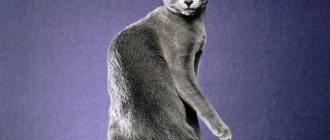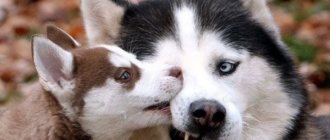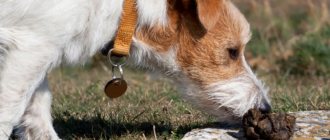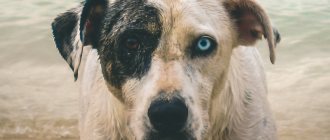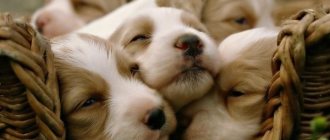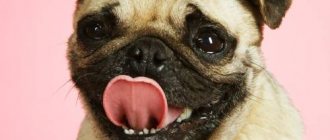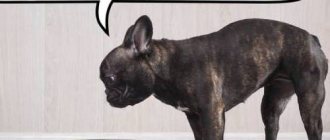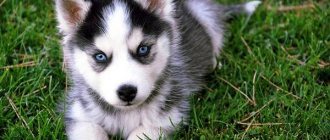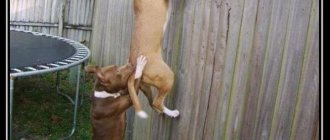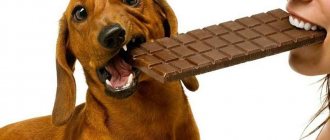Having a pet is like having a child. The slightest hint of a problem and the most steadfast of owners can be found panicking, thinking the worst and wondering what to do next. The advantage of having a child over a husky is that the child can at least try to communicate what the problem is. You need to try and figure it out yourself with the dog!
Huskies have had problems with food for a long time. They do not require much food to maintain energy and they also have very sensitive stomachs. This leads to a very common situation where Huskies do not eat their food. This article explains why and what you can do about it.
6 Reasons Your Husky Won't Eat:
- Disagreement with their food
- Lack of exercise
- Lack of daily feeding schedule
- Not comfortable being around him
- Bored of food
- Other health problems
Everything will be explained in detail below.
Disagreement with their food ⭐
Make sure your Husky eats a quality dog food made with whole, natural ingredients. And also from a reliable source.
If your husky doesn't feel too good after a meal, he will be inclined to leave it the next time you give it to him. Your Husky probably has a “soft” stomach and digestive system like most other Huskies. If he eats something that makes him sick, he will avoid it next time.
© shutterstock
Make sure your protein levels are high. Protein is essential to keeping your husky healthy and is also easy to digest.
While consuming fat is important, it is much more difficult to digest and putting extra strain on your digestive system certainly won't help.
Make sure the protein is high, with low to moderate levels of fat and carbohydrates.
Try to avoid dog food with common allergens such as soy, wheat, corn, dairy, eggs, chicken, lamb and beef. Yes, believe it or not, chicken is not always the best, even though it is the most popular!
Three power types
The husky's digestive system is significantly different from that of other purebred dogs. For example, they easily digest fatty foods without any harm to the liver. However, the diet of a sled dog has its own nuances and subtleties, and first of all it is necessary to choose the type of feeding.
There are three standard types of food for dogs: natural, dry and mixed. Let's take a closer look at each of them.
- Natural products. Eating regular foods best supports your pet's good health. It is important to note that a husky’s diet must contain enough meat and vegetables. This method of nutrition has both pros and cons. The advantages of natural food include the absence of harmful impurities, a high content of nutrients (protein and fiber) and easy control of freshness. Disadvantages of a diet made from ordinary products: time spent on cooking, painstaking selection of ingredients, the need to seek advice from a veterinary nutritionist. It is also important to note that it will be very difficult to switch a dog accustomed to natural food to a diet of dry food.
- Dry food. A diet consisting of ready-made food is suitable for huskies, but there are several nuances. The body of a purebred dog is very demanding of vitamins and microelements, so the type of dry food must be selected very carefully. It is necessary to choose food so that it corresponds to the age and breed of the pet. In addition, the pellets should not be too small for the animal to eat comfortably. Premium and super-premium class food is suitable for huskies, but not the cheapest brand. High-quality dry food is expensive, but it will pay off with the endless love of a happy and healthy dog.
- Mixed type of nutrition. For some breeds, it is quite normal to eat both food and regular food, but this is not the case with Huskies. It is better to feed such a pet according to one system, because constant changes will put a serious burden on the animal’s body. Mixed nutrition causes disruption of the digestive system and general deterioration of health in sled dogs.
Lack of exercise ⭐
By nature, Huskies are not gluttonous, so he must have a reason to eat.
Making sure your Husky gets enough exercise every day will give him a good appetite.
Huskies were bred to run and work with very little food. Over thousands of years of living this way, their bodies have developed extremely efficient metabolisms, meaning they only need small amounts of food to produce large amounts of energy.
Your Husky needs at least 2 hours of vigorous exercise per day. Which consists of running, walking, agility training, sled pulling and of course throwing your favorite ball in the park.
Without intense exercise, it is very likely that he will not feel the need to eat.
Refusal of daily feeding ⭐
If your husky eats treats or leftovers throughout the day (not recommended), he may simply not be hungry when it's time for lunch.
If your Husky doesn't have a set meal time, it's very likely that he won't be hungry when you put food out for him.
One of the big benefits of having a set time is that you train your Husky to be hungry at that time of day. It increases the likelihood that he will actually want to eat his food when you give it to him.
Just remember that feeding times should be based on his exercise. Always allow your Husky to digest 2 hours before training and 30 minutes after training before any feeding.
Not comfortable in his surroundings ⭐
Huskies are very sensitive to their environment and very in tune with their survival instincts.
As is often the case, eating is one of the times when wild animals become hyperactive, as it is often a vulnerable moment.
Despite the fact that domestication occurred a long time ago, it is still not ingrained in the husky.
When it comes time for each meal, the Husky will need to feel safe and comfortable in his environment in order to eat properly.
© shutterstock
If there are distractions nearby, as well as unfamiliar sounds or smells from other animals, your husky will likely not eat its food.
This is surprisingly common, and sometimes it may be worth trying to move his food bowl to another room. This may be enough to get him to start eating again.
Diagnosis of the disease
If the dog suddenly refuses food and water, and no external environmental factors have been found to influence this, the veterinarian will make a diagnosis after conducting several tests and laboratory studies.
- Ultrasonography. Based on this procedure, a specialist will be able to identify problems associated with the functioning of internal organs.
- General blood analysis. It will show whether there are inflammatory reactions.
- X-ray. This test will help determine the presence of internal fractures, tumors, and enlargement of the heart muscle.
- Adrenocorticotropic hormone testing. ACTH tests can indicate how well a dog's adrenal glands are working.
- Endoscopy. During general anesthesia, a device will be inserted into the animal that will show the professional the possible visual internal injuries to the dog.
After passing all the tests prescribed by the attending physician, he will be able to accurately determine the diagnosis, on the basis of which he will select the optimal course of pills and other medications to restore health to his beloved pet.
Bored of food ⭐
It's a little harder to find out, but huskies may simply become bored with the same food.
Even if you initially found something that your husky liked to eat, it can always change one day.
It is recommended to change the food from time to time if your husky seems to be less happy each time he eats.
Although, try to refrain from constant changes, as this may lead to stomach upset. Find something that works well and stick with it for a while as long as he enjoys eating it.
Major health problems ⭐
In the worst case, he may not eat due to health problems.
If you can't determine a possible explanation for why he isn't eating, be prepared to make an appointment with your veterinarian. If he doesn't eat for 2 days, he needs to see a vet.
Siberian Huskies and many other northern breeds suffer from zinc deficiency. Zinc is one of the most important minerals in their body, responsible for many necessary processes.
Zinc deficiency in Huskies causes many health problems and lack of appetite can be one of the symptoms.
To properly rule out any diseases, you will need to visit your local veterinarian for a complete examination.
Other reasons
Refusal to eat and the pet’s depressed state are also typical for other diseases. Diseases of muscles, bones, joints, and blood diseases are accompanied by pain. Pain occurs when moving, hence the unsteady gait and lethargy.
Injuries can damage internal organs. Internal bleeding threatens the dog’s life, but it is impossible to detect it visually. If your pet has a fever, is shaking, is vomiting, and there is blood in the vomit, contact your veterinarian immediately. And the best thing is to call a doctor at home, since during transportation there is a risk of further aggravating the problem.
With helminthiasis, a dog may experience bloating and bloody clots in the stool. The weakness and lethargy of the dog is explained by intoxication of the body - worms poison it with the products of their vital activity. Therefore, the pet is sad and refuses its favorite games and treats.
If your pet not only eats poorly and tries to lie down more, but at the same time he suddenly loses weight, it is worth checking him for cancer. In recent years, cancer has often been diagnosed not only in older animals, but also in young ones. The prognosis for the development of the disease and the quality of life of the animal depends on how quickly the diagnosis is made.
How to Encourage a Husky to Eat Again
- Eliminate common allergens from his diet . Make sure you are aware of common food allergens and then try to remove them from your husky's regular food. This may be the needed change the Huskies are looking for.
- Change your protein source to fish, duck, turkey, salmon . Although people often think that their dog likes chicken, beef, and pork, they are actually all common allergens. Duck, turkey or salmon protein is easier to digest and does not cause a reaction.
- Add extra flavor to their food (for health). There are many beneficial ways to improve the taste of your dog's food.
- Set the correct feeding time and stick to it . Train your Husky to be hungry at certain times of the day. As lunch approaches, his body clock will be ready to eat. You can even take it a step further by limiting the amount of time you hold his food bowl.
How long can a husky go without food?
One of the readers asked me a good question about this: how long can a husky go without food?
Technically speaking, an otherwise healthy adult Husky can go quite a long time (5-7 days) without food before it becomes life-threatening (ONLY if he is still drinking water).
If your Husky also refuses water, this is a completely different situation and you should seek help from a veterinarian within 24 hours.
If you have a PUPPY or SENIOR Husky, again this is a more delicate situation and you should seek help from your local vet no later than 24 hours after it appears.
When to be concerned if your dog isn't eating
Many dogs can skip feedings quite often, and sometimes even two!
If your dog has missed two to three feedings, or the break in feeding is more than 36 hours, call your veterinarian! It is also necessary to immediately consult a doctor if you have other symptoms: fever, constipation, diarrhea, vomiting, refusal of water, obvious manifestation of causeless pain. Nobody knows your dog like you! If you know that your pet is picky about food, then you should not run to the doctor at the first refusal of food. Remember that only sincere love and attention to your pet is the guarantee that your dog will never have reasons that lead to loss of appetite! Consider all of the above, and your pet will not have problems with nutrition.
Let's consider a situation where the dog doesn't eat, because it often happens that it's time for dinner, and your girl or boy turns his face away from the usual, quite appetizing food.
Friends, in such cases, if the dog does not eat, several options are possible. The most dangerous is illness, that is, she feels bad, has a high temperature, and doesn’t want anything. A similar situation occurs with us when we have a cold or the flu.
How to understand that refusal to eat is due to illness
During the inspection, you can find a lot of interesting things, for example, you will find a tick, a splinter between your fingers, an unpleasant odor from the mouth, or something else.
After the examination, if you find anything, then act according to the circumstances, but of course it is better to consult a doctor, because when a dog does not eat and there is a reason, this is serious.
And when the dog is cheerful, looks good, behaves as usual and does not eat, then do not worry and read on what to do.
Why might a dog not eat?
There can be a lot of reasons for this, the most common is the incorrect behavior of the owner. What happens when a dog refuses to eat? That's right, we persuade her, offer her something tasty. But the dog is not stupid, it immediately catches the connection - don’t eat and the kind owner will give you something tasty. That is, a conditioned reflex is established, which is then difficult to eliminate.
An incorrect feeding regime leads to the fact that the dog does not eat, because for many, food is constantly standing and waiting in the wings, often in a large assortment. There may be cottage cheese in one bowl, porridge in another, and next to it a piece of meat or sausage. The animal understands that there is always food, it walks and snacks. By the way, snacking also has a bad effect on appetite, much like candy does for children.
Also, the dog does not eat if an attractive person of the opposite sex appears in the neighborhood, of course I’m exaggerating, but a female in heat can reduce a male’s appetite for several days.
There may be other reasons for refusing to eat; they need to be found and eliminated. For example, a puppy was beaten with a broom for dirtying the carpets, and then they forgot about it and put the broom near the bowl. As a result, the animal is afraid to eat. There are many such cases; you need to observe the animal and try to understand what’s going on.
And also, friends, don’t worry, an adult dog won’t die of hunger, it can easily go without eating anything for a week without harm to its health. There is an exception, in case of some diseases you cannot fast, but the owner should know about these nuances without my article if he has a sick dog.
What to do?
The age-old question. If the dog is not eating and looks good as usual, then do nothing. Just put the food away until the next feeding. In this mode, you need to feed her - they offered food, refused, wait 5-10 minutes and take it away, no snacks between breaks, with the exception of rewards during training.
You must be strict with nutrition, you must be the master of the food, and feed when you need, and not when the dog wants. Of course, use your power within reason.
There is no need to pour vodka or wine for an appetite, as some do, it is better to take a longer walk, with good physical activity.
But if the dog does not want to eat and you see that something is wrong, then, as I said, conduct an examination, measure the temperature and, if you suspect an illness, go to the doctor.
Friends, what do you do when your dog doesn’t want to eat? Do you force her or persuade her? Write in the comments, I will be interested to know.
Here's a video on what to do if your dog doesn't want to eat, enjoy watching.
If there is a problem with a pet dog starting to refuse food, then every owner should try to understand what the problem may be. It is worth trying to identify the reasons why such difficulty in feeding the animal may have occurred. Best of all, if you don’t want to eat food for more than a day, you should take it to a specialist and ask him questions regarding why the dog refuses to eat. A professional will be able to make the correct diagnosis and prescribe treatment options that will help restore the animal’s health and appetite.
